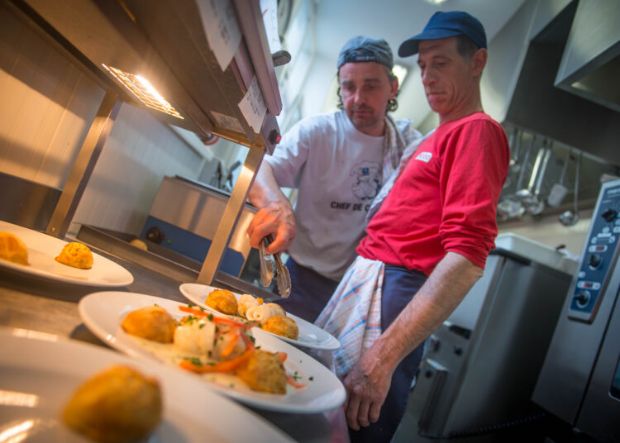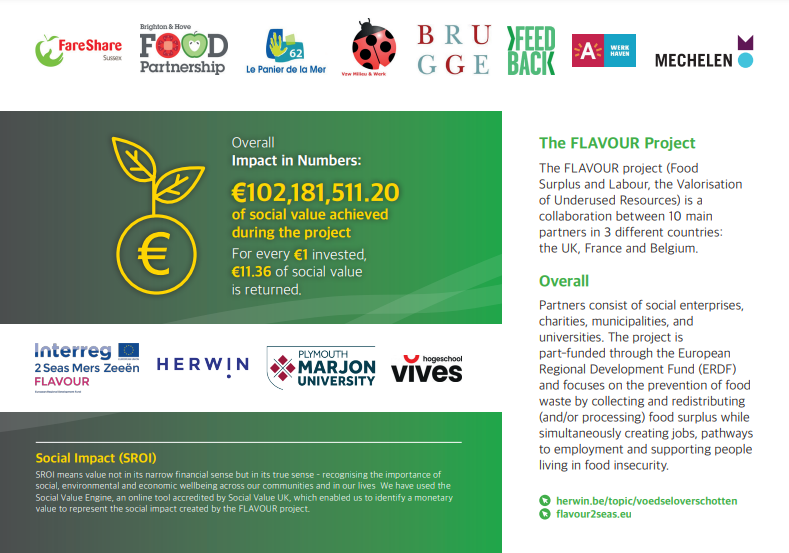It's cheaper to give people a job in the social economy than to do nothing.
While the war in Ukraine and the increasingly extreme climate make
our food more expensive, large amounts of perfectly edible food are lost
daily throughout the food chain.
To tackle the food problem, ten partners in the UK, France and Belgium
took part in the EU (Interreg) FLAVOUR project between 2019 and 2022.
Within that project, they looked for new ways to save food and simultaneously create jobs for people in social economy (video).

VIVES and Plymouth Marjon University calculated the Social Return on Investment (SROI) using the Social Value Engine,
designed by the Social Value Team in Yorkshire. This method allow you
to calculate a monetary value for social benefits resulting from your
activities.

These social benefits manifest themselves in several ways: people
struggling to find a job acquire professional skills while fighting
food waste. In the process, they gain more self-confidence and become
more active in their communities, resulting in less social isolation,
etc.
The figures show the importance of an inclusive social economy. The figures show the importance of an inclusive social economy. The figures show the importance of an inclusive social economy. The figures show the importance of an inclusive social economy. It is cheaper for society to give people a job than to do nothing.
The project also shows that we need to be more careful with food. Not
only because it is good for the climate, but also becauseit has a
positive social impact.
For more information, visit https://www.socialvalueengine.com/
